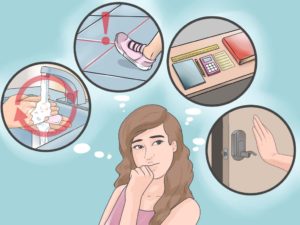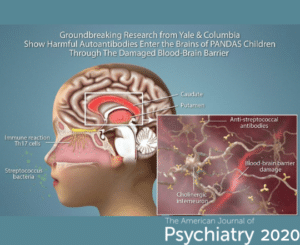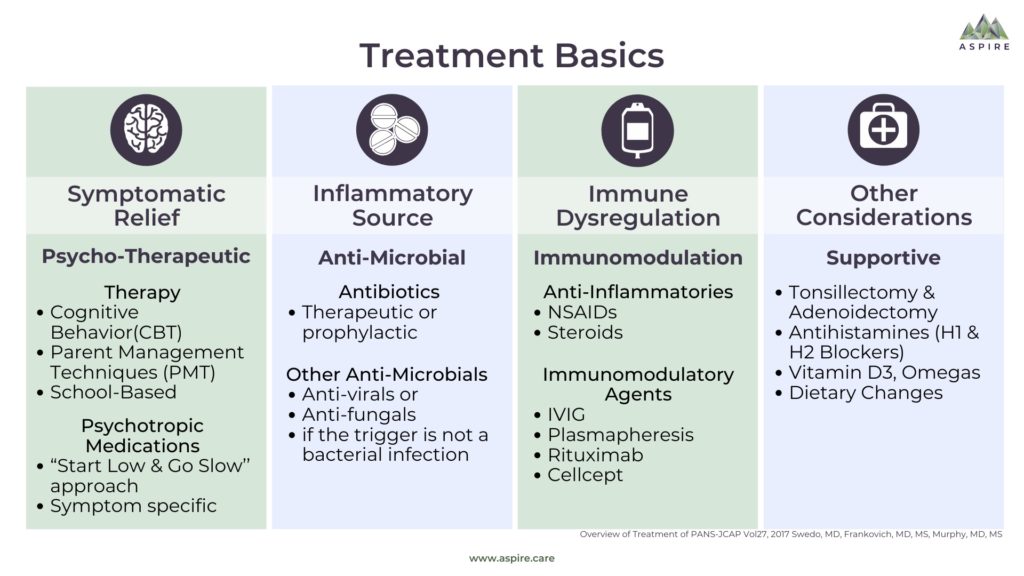CONTACT
We will reply as soon as possible.
Enevia Health, LLC
30 N Gould Ste N, Sheridan, WY 82801, USA
Acute-onset Pediatric Neuropsychiatric Syndrome (PANS), which is also known to be a subgroup associated with Streptococcal Infections (PANDAS), are syndromes that have provoked enormous debates within pediatric rheumatology and neurology.
PANS is a clinical diagnosis characterized by the acute development, sometimes overnight, of neuropsychiatric symptoms that include obsessions/compulsions or food restriction, often diagnosed with obsessive-compulsive disorder (OCD) or an eating disorder. , but the sudden onset of symptoms differentiates PANS from these other disorders. In addition, it may be associated with symptoms of depression, irritability, anxiety and/or difficulty completing schoolwork. Nowadays, the cause or triggering factors are precisely unknown in most cases, but thanks to studies carried out in the last three decades, an infectious origin, metabolic alterations and other inflammatory reactions are attributed.

The first descriptions date back to 1998, in publications by Swedo et. al., who describe for the first time a cohort of patients with PANDAS, which is why they define the disease as acute and with rapid evolution of its criteria symptoms, such as obsessive-compulsive disorder (OCD), tic disorder, such as complications of a group A beta-hemolytic streptococcus (GAS) infection. Something important to mention is that PANDAS was identified as a medical syndrome a decade before PANS, but PANDAS has been classified as a subset of PANS.
PANS/PANDAS has carried great controversy for years based on its existence as a syndrome, its pathophysiology, its clinical manifestations and classification. PANS has involved many challenges related to the understanding of the pathophysiological processes that surround it and its final diagnosis; the reason is mainly associated with the complex clinical presentations and the high degree of difficulty in determining the etiology.
Currently, many studies are still required to obtain better data about the epidemiology of PANS. PANS is a diagnosis of exclusion, this does not mean that other neurological/medical disorders must be ruled out before a diagnosis can be made, which makes it more complex to diagnose PANS. Although it is widely recognized that PANS is a low prevalence condition, and due to the low number of studies, diagnosis and follow-up of cases for an accurate prevalence, and furthermore the incidence rates remain uncertain.
Some researchers advocate that PANDAS belongs to the Pediatric Acute Onset Neuropsychiatric Syndrome (PANS) spectrum complex, assuming that not only GAS can induce neuropsychiatric symptoms in children. But this statement may also come to discussion since different classification criteria have been provided for patients with PANS, which makes this aspect even more complex.
Therefore, the diagnosis of PANDAS now falls into the newly established category of PANS. Both PANDAS and PANS are described as acute-onset or subacute-onset neuropsychiatric syndromes, which typically present followed by a chronic relapsing/remitting course or a progressive disintegrative course with deterioration of cognitive functions.

The strongest suspicion is based on an autoimmune etiology for both conditions, and putative biomarkers, traditionally related to Sydenham's Chorea, have been detected, such as autoantibodies in the Cunningham Panel, which evaluates serum levels of immunoglobulin G ( human IgG) by enzyme-linked immunosorbent assays (ELISA) directed against dopamine D1 receptor (D1R), dopamine D2L receptor (D2LR), lysogangioside-GM1 and tubulin. But it also evaluates by cellular stimulation by measuring the ability of a patient's serum immunoglobulin G (IgG) to stimulate the activity of calcium/calmodulin-dependent protein kinase II (CaMKII) in human neuronal cells.
In principle, it is assumed that the CNS is first affected by an immune response activated by an infectious agent or by other environmental factors, but the persistence of immune activation, even after remission of the acute phase, maintains an inflammatory condition and harmful.
Although more studies are still awaited, the most recent evidence shows that after a GAS infection, antibodies produced against GAS epitopes presumably cross-react against the brain's own tissue, such as proteins expressed in neurons. of the basal ganglia, through a mechanism of molecular mimicry, suggesting an autoimmune pathogenesis similar to Sydenham's chorea.
The treatment approach is based on some recent treatment recommendations for PANS that have included psychiatric and behavioral interventions, such as cognitive behavioral therapy, which despite the lack of systematic studies in the field is used with beneficial results. The use of antibiotics, non-steroidal anti-inflammatory drugs (NSAIDs), corticosteroids, plasmapheresis and off-label intravenous immunoglobulin (IVIG) have also been discussed, but PANS the outlook is very superficial and deeper research and prospective follow-up of the results are still needed. long-term.
IVIg represents one of the most "invasive" forms of therapy proposed for PANS, although its use is currently off-label, due to the lack of research in PANS. To our knowledge, only few studies have been conducted, and they have shown contradictory results.

One of these trials compared plasma exchange, IVIg, and placebo (saline) for the treatment of neuropsychiatric symptom exacerbations in children with OCD triggered by infections and tic disorders and reported that plasma exchange and IVIg were better than placebo The other randomized controlled trial (RCT) found no significant differences between the intervention and placebo groups in children with PANDAS.
One of the barriers is the ethics of the studies that generate difficulty, because we would be treating children with an inactive placebo administered intravenously. It is also problematic to randomize children with complex neuropsychiatric or neurodevelopmental disorders with different combinations of symptoms and severity. . IVIg infusions also have well-known and tangible transient side effects, such as headache and nausea, making it difficult to maintain blinding in an RCT.
Below, we leave you other articles referring to neurodevelopmental pathologies that could be of interest to you.
Also, you can access our website at www.eneviahealth.com to check the services we have as well as advice from our team of specialists.
At Enevia, we believe that no person should be diagnosed with autism without first having ruled out organic problems.
Because at Enevia, we care about your health!
We will reply as soon as possible.
30 N Gould Ste N, Sheridan, WY 82801, USA
Our groups are the ideal platform to learn and share your scientific concerns about neurodevelopment issues
*Our purpose is informational only, it is not intended to be a substitute for medical advice, diagnosis or treatment.
We are working on our website. For any queries, you can contact our customer service team at atencionalcliente@eneviahealth.com